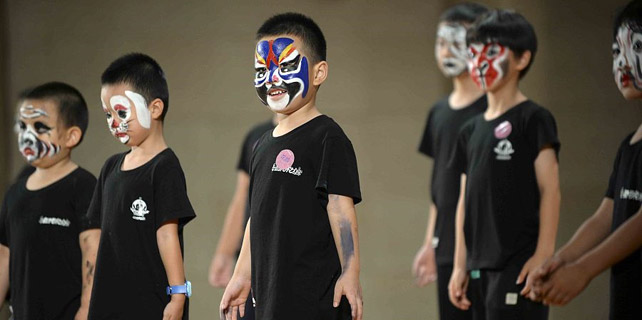Staking it out on the smarty cyborgs
SmarTone has gone to great lengths to keep its pace as one of HK's leading mobile network operators. CEO Anna Yip tells Duan Ting going digital stands as one big blessing for them.
'Retail is fun," says newly appointed mobile telecoms chief Anna Yip, staking her corporate credibility on the conviction that digitalization, notably the application of robotics, will be the game changer for Hong Kong business.
"Going digital is really important to us. I'll take up the challenge and we'll grow with it as we've grown with Hong Kong in the local mobile telecoms industry," says Yip, who's been just more than a year in her job as chief executive officer of SmarTone Telecommunications Holdings Ltd - the mobile telecoms arm of Hong Kong property titan Sun Hung Kai Properties.
SmarTone took credit as the first local telecom operator to put up smart robots at its retail stores in February to "boost and innovate customer experience" and bring more fun and interaction with clients.
Equipped with intelligence and real-time interaction capabilities, smart robot NAO was the first to take to the stage at apm - the biggest shopping mall in the city's Kwun Tong district - performing detailed actions and speaking multiple languages, including Cantonese, Putonghua and English, to interact with customers, much to their delight. It can also enlighten them on the company's newest service plans, as well as various smartphone accessories.
"What I want to do is to build on great foundations for the company," Yip tells China Daily, adding she intends to inject new and dynamic energy and elements into the operation.
"We pioneered and introduced robotics at our shops on Valentine's Day this year. We used applications to teach the robots to say funny sentences in different ways, such as wishing ladies a very happy day. Primarily, the robots are positioned for entertainment and fun and they dance, tell jokes and play with people. They can also be used to greet customers, pose questions and introduce products and services."
So far, about one-third of SmarTone's more than 30 shops across Hong Kong have robots, depending on the availability of space.
Online stores also make up a key component of the group's structure, enabling customers to sign up new contracts or engage in live chats. According to Yip, more than 60 percent of their online clients buying handsets and accessories are new customers who have been using other phone plans.
Comfortable footprint
"So, you can see the big role of digitalization. We'll continue to introduce new elements at our retail stores."
Yip says they've been constantly monitoring the opening of new stores, and are now quite comfortable with their footprint with hardly any need to increase the number of physical stores on a massive scale, taking into consideration the city's skyrocketing retail rents.
As a prominent mobile network operator, SmarTone is also betting big on developing the 5G generation network which, Yip believes, will stir another "wave" in the industry in future. In this respect, the company aims to partner Swedish telecoms behemoth Ericsson in starting an innovation hub in Hong Kong to showcase their latest technologies and drive innovation for 5G application in various industries.
SmarTone says it has been focusing on its core mobile business and targeting various market segments with tailored services and offers, including roaming packages and family plans, while actively exploring new revenue streams.
Pressure forecast
In its 2017 interim results, SmarTone posted a net profit of $393 million - a slight year-on-year drop of 2 percent - saying it sees pressure on profitability in the second half of the year with rising spectrum costs, lower roaming business and slower handset business.
Looking back on the company's milestones, Yip reckons that the emergence of smartphones in the 1990s represented the most significant event for the industry, revolutionizing the scene. In 2012, SmarTone laid claim to being the only Hong Kong mobile operator approved by Apple to offer 4G on their iPhone 5 models, a big stimulus for the company.
"Of course, going digital was the next major change," says Yip, noting that Hong Kong has always been the most competitive market and the only possible recourse is to serve their clients better.
As to how Hong Kong could outdo its regional competitors as a smart city, she says the city has its unique strengths, but greater efforts must be forthcoming from the private and public sectors, as well as the government, to drive innovation. "We urge the government to support research and development of 5G."
Yip reckons that any move to venture into Chinese mainland corporate turf won't probably be in the traditional way as the mainland's mobile telecoms sector is mature enough and dominated by several big State-owned enterprises. But, SmarTone is working with Tencent and Alibaba in areas like music and payment modes. She sees the mainland as a "stunning case study" in terms of how fast the industry can grow.
Yip was named executive director and chief executive officer of SmarTone Telecommunications in June last year, bringing to the company a wealth of experience from her stints at MasterCard, Singapore's United Overseas Bank and international consultancy McKinsey and Company.
"Encouragement from the board, which wants people who know about tech but not necessarily from the industry itself and who can inject new energy into the firm, drove me to join the company. I'm all set to accept the challenge."
"Next year, we'll be celebrating SmarTone's 25th anniversary," Yip notes. "Basically, we grew up together with the mobile telecommunication business in Hong Kong."
"It's my first job with a local company and, suddenly, it's very refreshing."
Contact the writer at tingduan@chinadailyhk.com









